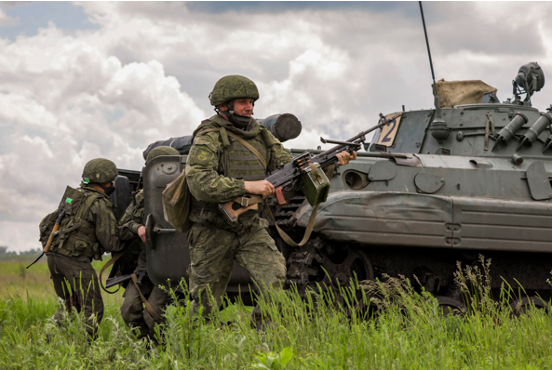
Russia Monitor is a review of the most important events related to Russian internal and external security, as well as its foreign policies.
Date: 16 July 2020
Water Shortage in Crimea: Russia May Make a New Move Against Ukraine
Moscow may decide on a military option to gain control of water for the peninsula, Ukrainian military officers say. Of course, that is nothing but a Russian excuse.

According to Ukrainian senior officials, Russia has assembled thousands of its troops in the Moscow-occupied peninsula. This is not accidental, though. The Crimean peninsula has long suffered from water shortages, but these are now often exacerbated by the ever-more frequent winters with little rain or snow. In the last several months, these difficulties have become critical. According to Russian officials, the region has seen its reserves of potable water decline by 60 percent under Russian occupation. Also, it will entirely run out of supplies of this critical natural resource sometime in the summer. Where did drinking water come from in 2013, thus shortly before the Russian annexation? Before, water procured from the Dnieper River in Ukraine, via the North Crimean Canal, made up 86.65 percent of the total water intake; local stocks equaled 8.7 percent; groundwater — 4.41 percent while and seawater — 0.16 percent. But following the peninsula’s annexation by Russia, Kyiv cut off water supplies from the Dnieper, forcing the occupiers to rely on local wells, ground water, and reservoirs. During a meeting on the socio-economic development of Crimea and Sevastopol last January, Russian President Vladimir Putin criticized local officials for their inept attention to solving the water supply issue. Crimean authorities reportedly sought to buy Ukrainian water, but Kyiv refused. According to unofficial reports, bringing water back to Crimea is one of the Kremlin’s conditions to begin peace talks. The topic was high on the agenda of the December 2019 meeting of the Normandy Four in Paris as well as of Putin’s recent phone calls with his Ukrainian counterpart Volodymyr Zelensky. In Kyiv and elsewhere, concerns are that Russia will exploit the water crisis in Crimea to invade Ukraine, reportedly to “avoid a full-scale humanitarian disaster.”
Support Us
If content prepared by Warsaw Institute team is useful for you, please support our actions. Donations from private persons are necessary for the continuation of our mission.
All texts published by the Warsaw Institute Foundation may be disseminated on the condition that their origin is credited. Images may not be used without permission.
















